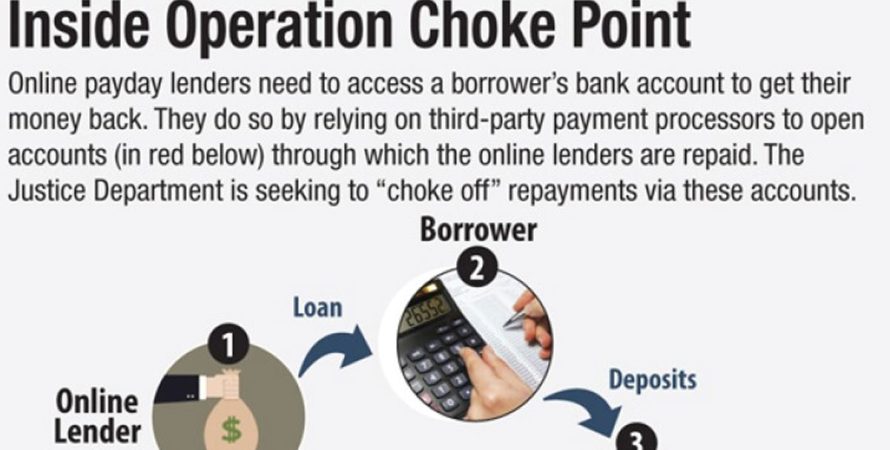detailing the Biden Admin’s coordinated, ongoing effort across virtually every US financial regulator to deny crypto firms access to banking services
What began as a trickle is now a flood: the US government is using the banking sector to organize a sophisticated, widespread crackdown against the crypto industry. And the administration’s efforts are no secret: they’re expressed plainly in memos, regulatory guidance, and blog posts. However, the breadth of this plan — spanning virtually every financial regulator — as well as its highly coordinated nature, has even the most steely-eyed crypto veterans nervous that crypto businesses might end up completely unbanked, stablecoins may be stranded and unable to manage flows in and out of crypto, and exchanges might be shut off from the banking system entirely. Let’s dig in.
Stay in the know on crypto by frequently visiting Crypto News Today
For crypto firms, obtaining access to the onshore banking system has always been a challenge. Even today, crypto startups struggle mightily to get banks, and only a handful of boutiques serve them. This is why stablecoins like Tether found popularity early on: to facilitate fiat settlement where the rails of traditional banking were unavailable. However, in recent weeks, the intensity of efforts to ringfence the entire crypto space and isolate it from the traditional banking system have ratcheted up significantly. Specifically, the Biden administration is now executing what appears to be a coordinated plan that spans multiple agencies to discourage banks from dealing with crypto firms. It applies to both traditional banks who would serve crypto clients, and crypto-first firms aiming to get bank charters. It includes the administration itself, influential members of Congress, the Fed, the FDIC, the OCC, and the DoJ. Here’s a recap of notable events concerning banks and the policy establishment in recent weeks:
- On Dec. 6, Senators Elizabeth Warren, John Kennedy, and Roger Marshall send a letter to crypto-friendly bank Silvergate, scolding them for providing services to FTX and Alameda research, and lambasting them for failing to report suspicious activities associated with those clients
- On Dec. 7, Signature (among the most active banks serving crypto clients) announces its intent to halve deposits ascribed to crypto clients — in other words, they’ll give customers their money back, then shut down their accounts — drawing its crypto deposits down from $23b at peak to $10b, and to exit its stablecoin business
- On Jan. 3, the Fed, the FDIC, and the OCC release a joint statement on the risks to banks engaging with crypto, not explicitly banning banks’ ability to hold crypto or deal with crypto clients, but strongly discouraging them from doing so on a “safety and soundness” basis
- On Jan. 9, Metropolitan Commercial Bank (one of the few banks that serve crypto clients) announces a total shutdown of its cryptoasset-related vertical
- On Jan. 9, Silvergate stock falls to a low of $11.55 on bank run and insolvency fears, having traded as high as $160 in March 2022
- On Jan. 21, Binance announces that due to policy at Signature bank, they will only process user fiat transactions worth more than $100,000
- On Jan. 27, the Federal Reserve denies crypto bank Custodia’s two-year application to become a member of the Federal Reserve system, citing “safety and soundness” risks
- On Jan. 27, the Kansas City Fed branch denies Custodia’s application for a master account, which would have given it the ability to use wholesale payment services, and to hold reserves with the Fed directly
- On Jan. 27, the Fed also issues a policy statement which discourages banks from holding cryptoassets or issuing stablecoins, and broadens their authority to cover non-FDIC insured state-chartered banks (a reaction to Wyoming Special Purpose Depository Institutions (SPDIs) like Custodia, which can hold crypto alongside fiat for its banking customers)
- On Jan. 27, the National Economic Council releases a policy statement not explicitly banning banks from serving crypto clients, but strongly discouraging banks from transacting with cryptoassets directly or maintaining exposure to crypto depositors
- On Feb. 2, the DoJ’s fraud unit announces an investigation into Silvergate over their dealings with FTX and Alameda
- On Feb. 6, Binance suspends USD bank transfers for retail clients (Binance US was not affected)
- On Feb. 7, the Jan. 27 Fed statement is entered into the federal register, turning the policy statement into a final rule, with no Congressional review, or public notice-and-comment period
- As of Feb. 8, Protego and Paxos’ applications to follow Anchorage and obtain full approval to become National Trust Banks are still outstanding (past the 18 month deadline), and appear likely to be imminently denied by the OCC
In sum, banks taking deposits from crypto clients, issuing stablecoins, engaging in crypto custody, or seeking to hold crypto as principal have faced nothing short of an onslaught from regulators in recent weeks. Time and again, using the expression “safety and soundness,” they’ve made it clear that for a bank, touching public blockchains in any way is considered unacceptably risky. While neither the Fed/ FDIC/ OCC statement — nor the NEC statement a few weeks later — explicitly ban banks from servicing crypto clients, the writing is on the wall, and the investigations into Silvergate are a strong deterrent to any bank considering aligning itself with crypto. What is clear now is that issuing stablecoins or transacting on public blockchains (where they could circulate freely, like cash) is highly discouraged, or effectively prohibited. It is equally evident that a bank-issued fiat token would only be acceptable to regulators if it were domiciled on a surveilled, private blockchain. No ‘unhosted’ wallets allowed.
1 And perhaps most damagingly, the Fed’s devastating denial of Wyoming SPDI bank Custodia, as well as their policy statement, effectively ends any hopes that a state-chartered crypto bank might get access to the Federal Reserve system without submitting to FDIC oversight.![]()
Read More at PIRATEWIRES
Please Read Essential Disclaimer Information Here.
© 2024 Crypto Caster provides information. CryptoCaster.world does not provide investment advice. Do your research before taking a market position on the purchase of cryptocurrency and other asset classes. Past performance of any asset is not indicative of future results. All rights reserved.
Contribute to CryptoCaster℠ Via Metamask or favorite wallet. Send Coin/Token to Addresses Provided Below.
Thank you!
BTC – bc1qgdnd752esyl4jv6nhz3ypuzwa6wav9wuzaeg9g
ETH – 0x7D8D76E60bFF59c5295Aa1b39D651f6735D6413D
MATIC – 0x7D8D76E60bFF59c5295Aa1b39D651f6735D6413D
LITECOIN – ltc1qxsgp5fykl0007hnwgl93zr9vngwd2jxwlddvqt





